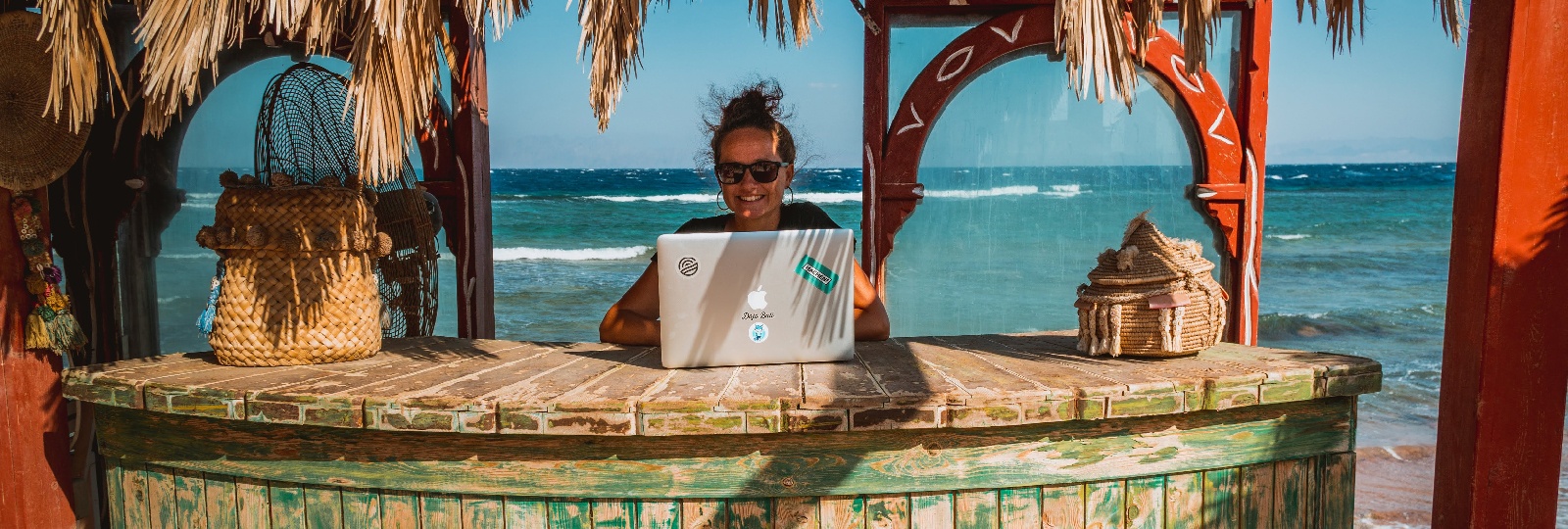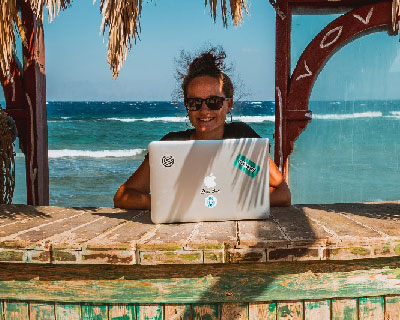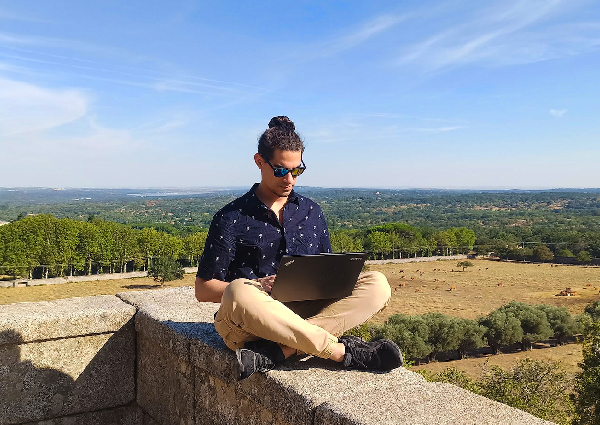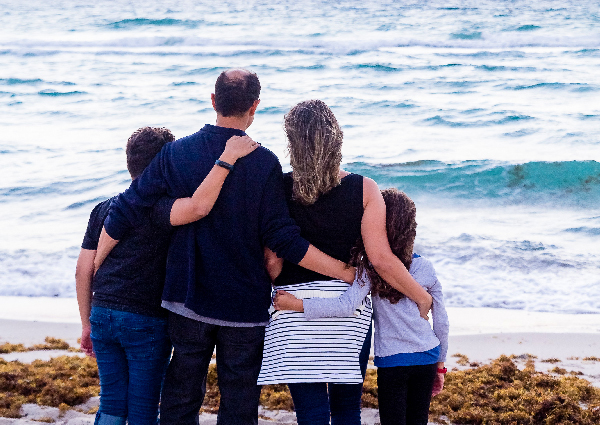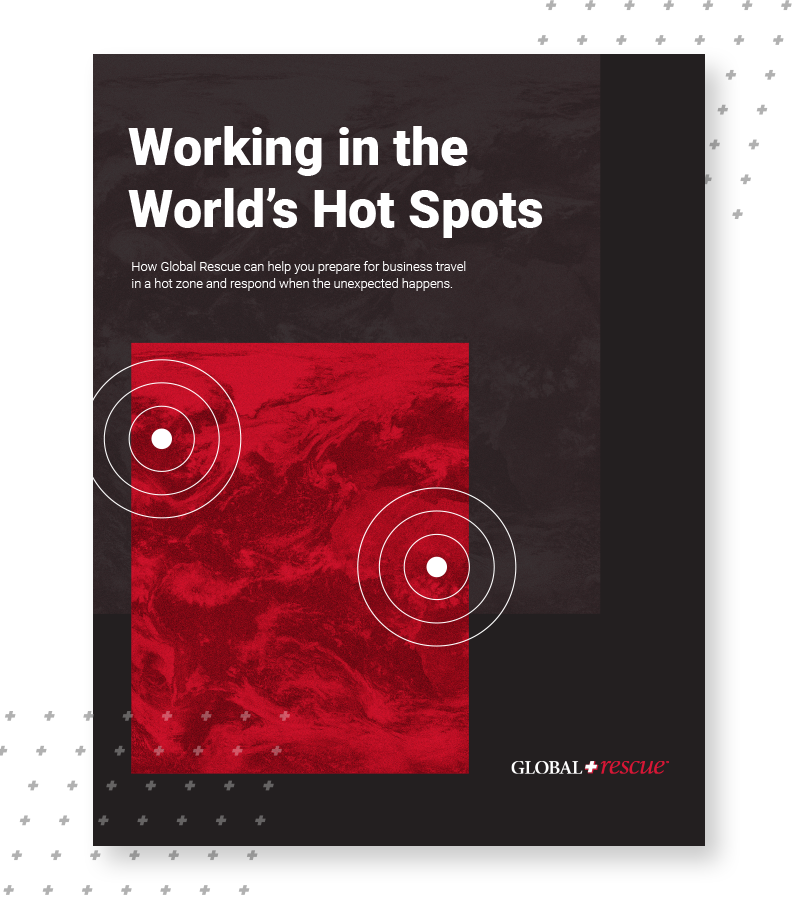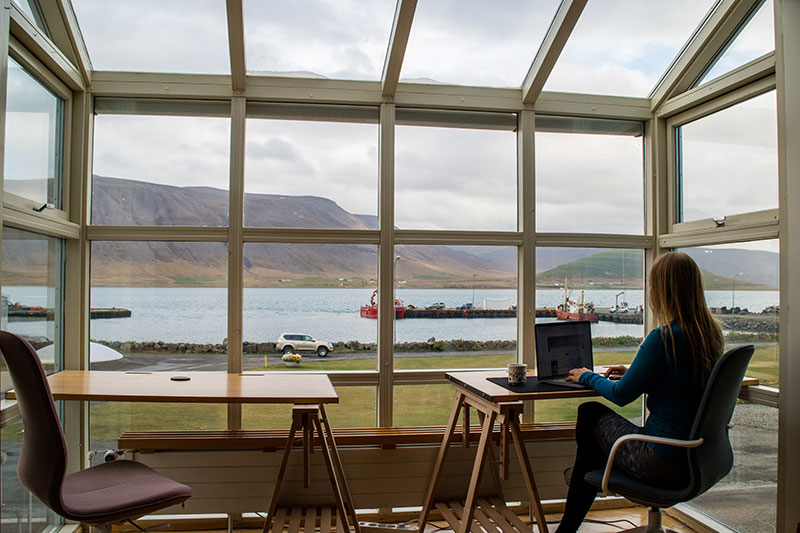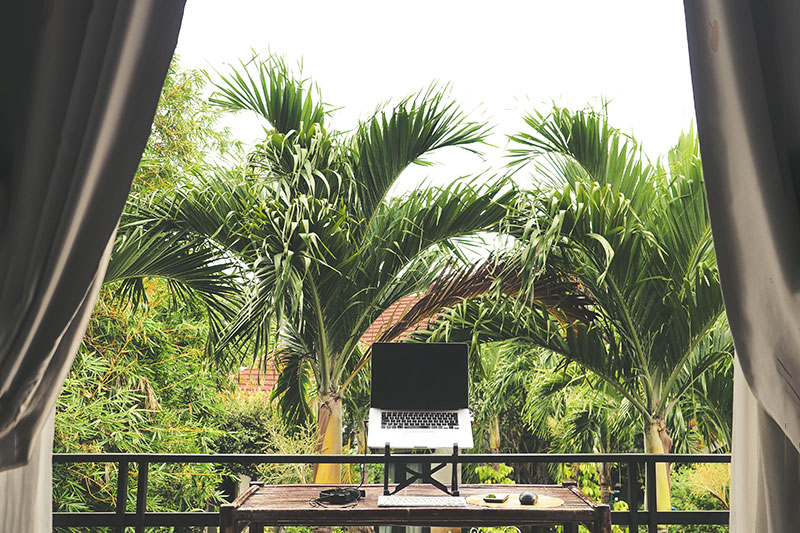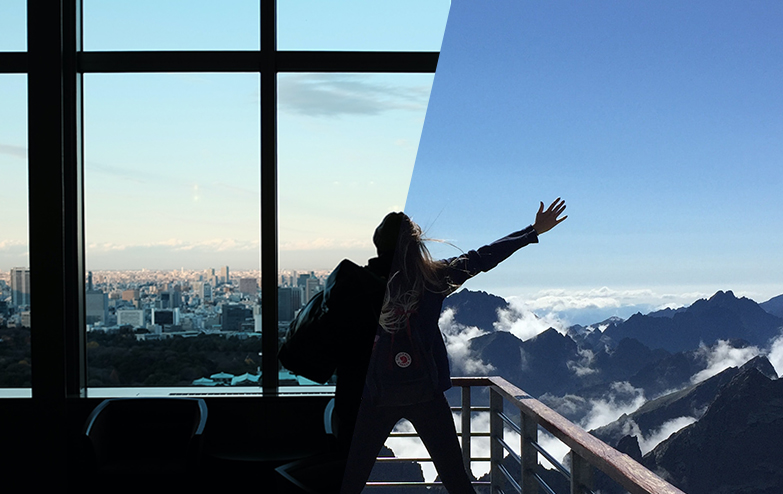Many business travelers are blending work travel with leisure travel. This growing trend of adding leisure days to a work-related trip is called “bleisure travel.” Some bleisure travelers are bringing their family with them, too. It’s another product of the pandemic — a deepened sense of the importance of family time.
“Working professionals have become accustomed to managing job responsibilities from home, allowing them to maximize time with their families in a way we hadn’t before,” said Stephanie Diamond, Global Rescue’s vice president of Human Capital Management and a veteran international human resources expert. “Now, if you have to travel for work, why wouldn’t you take your family with you?”
“Work from Anywhere” Safety Tips
Managing your health and safety as a digital nomad is different compared to bleisure travelers, who ravel for short periods, or ex-pats who are abroad in a single location for a year or more. Digital nomads may spend years abroad in multiple destinations, in many countries.
If you are thinking about working from overseas, you’ve probably mapped out most of the logistics. For example, your health care insurance. Your domestic health insurance plan may not provide coverage outside your home country.
And have you thought about the resources you will need in the event of an emergency?
“If an emergency happens at home, you notify your local emergency services,” said Ralf Hilber, paramedic and supervisor of operations at Global Rescue. “But what will you do when you are abroad? It’s important to have a plan in place because an emergency can happen at any time and seconds count. This is when you can count on our operations team to expertly step in and assist.
Before you pack your bags and hit the road, here are five travel safety tips for the work-from-anywhere crowd:
ONE
Share your travel plans with people at home.
Share your travel itinerary with your emergency contact: friend, family member or colleague. Give specific details — flight, accommodations, work phone number, cell phone number and length of stay.
Harding Bush, manager of operations at Global Rescue, stresses the importance of setting up a contingency plan before your trip. This could include a weekly check-in phone call and who to call if you don’t check in.
“Most folks think providing a departure time and an estimated return time is enough, but you should add what the person who has the plan should do if they don’t hear from you,” Bush said.
TWO
Ask your company about duty of care
As an employee, it doesn’t matter if you are office bound, or not. Company leaders — CEOs, chief security officers, travel managers and human resources directors — are accountable for the development and oversight of policies, programs and logistics that protect traveling staff.
“They carry a duty of care responsibility to their people, to take care of them and avoid exposing them to any unnecessary or undue risk,” Richards said. “Managing the duty of care responsibilities for a remote workforce will be a new challenge as unprecedented numbers of employees log in from the beach, mountains and other places where they’ve chosen to live.”
What is duty of care? According to Jeffrey Ment, managing partner of The Ment Law Group and Global Rescue advisor, “duty of care means an organization has a legal obligation to take reasonable care of its traveling employees. Duty of care means acting reasonably as a prudent person or company should act under the circumstances.”
Check if your employer has a Duty of Care policy, what it entails, and if the company has the resources to execute the plan. You can also ask about hiring a risk-assessment consultant to review your travel itinerary or destination and give advice about staying safe.
THREE
Be up front with your employer
Things can get a little blurry when it comes to bleisure travel. Your company’s specific travel risk management policies and duty of care obligations are only applicable during the business part of your trip. That means, when indulging in the leisure portion of your trip, you would be responsible for your own travel safety.
“Back in 2005, I was in Ecuador for business, where I planned to also hike the portion of the Inca Trail,” Diamond said. “If I hadn’t checked in on my company’s policies, I would not have been protected if an emergency occurred on the trail.”
And, most likely, any family members traveling with Diamond would not have been protected either. That’s when you need to look for a travel protection membership that includes a primary member, spouse and dependent children. Then every family member will be able to access medical, security, evacuation, travel risk and crisis management services. And, if the unexpected happens, there are no claims, deductibles or co-pays.
FOUR
Be able to communicate at all times
It’s essential to always be able to let someone know where you are. A fully charged phone is critical, so make sure you have a spare battery or charging device. Bush also recommends having a reliable means of communication, like a satellite phone, in case cell phone networks go down.
If you are going to make a lot of local calls, buying a local phone is a better idea than replacing your mobile phone Sim card with a local Sim card. But keep your own phone in case of an emergency, as the new local number may be unrecognizable to those back home.
FIVE
Get Global Rescue
Digital nomad, expat, bleisure traveler, contractor — these remote workers all have one thing in common: the need for travel protection services.
A travel protection membership is like having a personal assistant available for your health and safety needs. A Global Rescue membership is there for the small asks — such as expediting the replacement of a lost passport to finding the nearest health care facility — as well as the big asks: field rescue, medical evacuation and hospital-to-hospital transport.
A travel protection membership is like having a personal assistant available for your health and safety needs. A Global Rescue membership is there for the small asks — such as expediting the replacement of a lost passport to finding the nearest health care facility — as well as the big asks: field rescue, medical evacuation and hospital-to-hospital transport.
There’s also a security add-on, which means military special operations veterans will extract members in danger of bodily harm from war, civil unrest, natural disasters, government evacuation orders and other security emergencies.
Then there’s the advantage of calling 24/7 with any travel question you might have — a symptom, a risk assessment for an area, the nearest pharmacy or translation services — and getting a live, in-house travel expert on the phone.
“Our operations center is staffed 24/7/365 by highly skilled nurses and paramedics who will be able to assist you in your time of crisis to identify your needs and find an appropriate solution or facility for you to be seen for evaluation and treatment,” Hilber said. “With our team of specialists, you will never feel that you are by yourself.”

